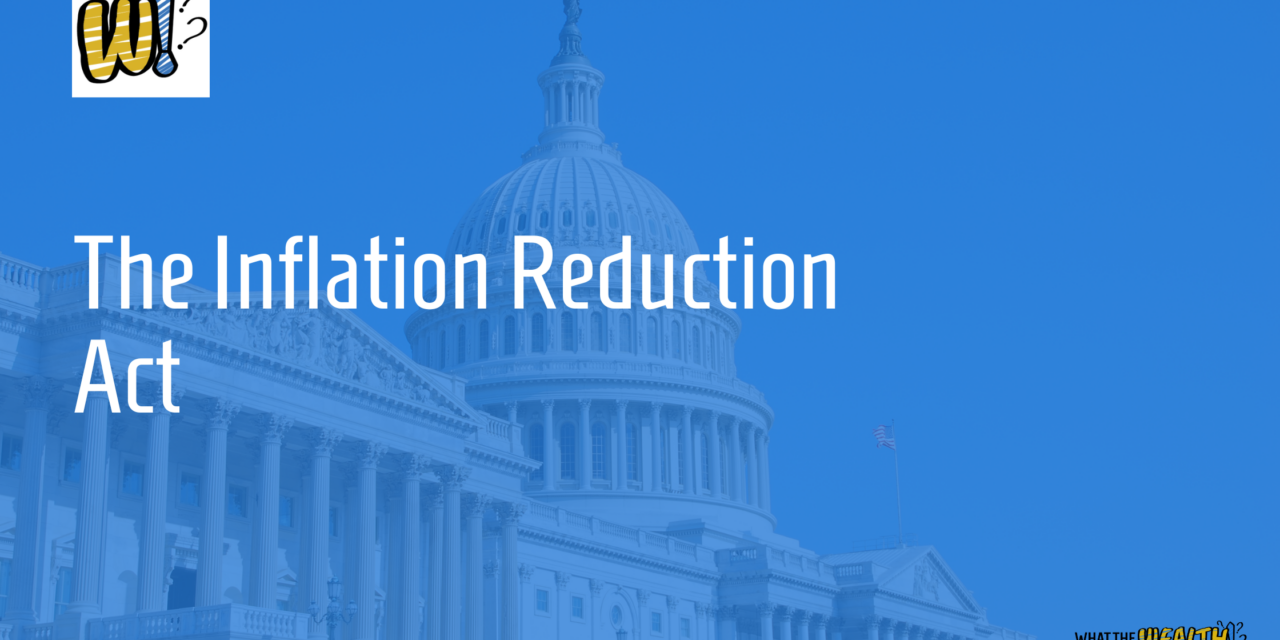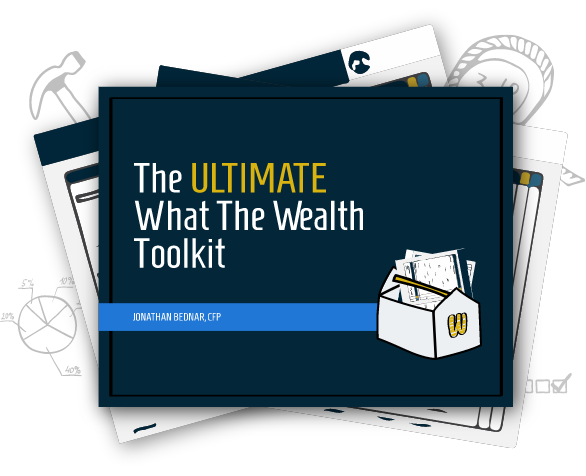On August 16th, President Biden signed the Inflation Reduction Act into law. We’ll take a look at what is contained in the bill.
A Stripped Down Bill
In 2021 President Biden tried to get his Build Back Better bill passed. The bill was complex, with a lot packed into it, and it failed to pass. The bill went back to the drawing board, where it was stripped down to a few key provisions and came back as the Inflation Reduction Act.
The votes were along party lines, with Vice President Harris casting the tie-breaking vote so President Biden could sign the bill into law.
What’s in a Name?
Not much, apparently. The Penn Wharton Budget Model is a nonpartisan, research-based initiative that provides economic analysis of the fiscal impact of public policy. PWBM has concluded that:
The Act would have no meaningful effect on inflation in the near term but would reduce inflation by around 0.1 percentage points by the middle of the first decade. These point estimates, however, are not statistically different from zero, indicating a low level of confidence that the legislation would have any measurable impact on inflation.
The Congressional Budget Office is a federal agency that provides budget and economic information to Congress and had similar findings to PWBM, estimating that the law will have a “negligible effect on inflation” this year and next and change inflation between 0.1 percentage point lower and 0.1 percentage point higher than it currently stands.
What’s in the Bill?
There are five main takeaways from the Inflation Reduction Act.
Corporate Minimum Tax Rate
Corporations with at least $1 billion in income will be subject to a minimum tax rate of 15%. At least 55 of the biggest corporation in the U.S. paid no federal corporate income taxes in 2020, something President Biden cited in his State of the Union speech.
The act also created a stock buyback tax of 1%. Many companies spend part of their profits on stock buybacks. Doing so reduces a company’s outstanding share count. Corporate earnings announce profits on an earnings per share basis, so if there are fewer outstanding shares, the earnings are higher when next announced.
Will this 1% excise tax dissuade companies from continuing the practice of stock buybacks? Probably not. Although some may choose to issue dividends instead but I don’t expect the tax to have much impact.
The act does not increase taxes for individuals and households. The current tax rates from the Tax Cuts and Jobs Act of 2017 are set to expire in 2025.
Prescription Drug Price Reform
If you’re looking for something that might positively impact your wallet, here it is. The act allows Medicare to negotiate the prices for some prescription drugs, which will bring down costs for consumers covered under Medicare.
There is also a $2,000 out-of-pocket cap on prescription drug costs for Medicare recipients that will take effect in 2025.
IRS Tax Enforcement
For years, the IRS has claimed to be underfunded. The act aims to address that by giving the agency an additional $80 billion over the next ten years to better enforce tax laws. Expect more audits, so keep your receipts and stay above board!
Affordable Care Act Subsidy Extension
The federal government offers subsidies to those who buy insurance on the exchange, freelancers, small business owners, and early retirees among them, and earn under a certain amount per year to help lower the cost of their premiums.
These subsidies were set to expire at the end of the year, which could have resulted in three million Americans losing their health insurance. The act extends those subsidies through 2025.
Energy Policies
The act includes provisions aimed at climate protection, including tax credits for households to help offset energy costs, investments in clean energy, and tax credits to reduce carbon emissions.
What’s Not in the Bill?
Many investors let out a sigh of relief when there was nothing in the act about Roth IRAs. There are income levels after which you cannot contribute to a Roth IRA:
- Single: MAGI under $140,000 for 2021, $144,000 for 2022
- Married, File Jointly: MAGI under $208,000 for 2021, $214,000 for 2022
For some investors there could be a loophole called the Backdoor Roth IRA. Many investors can make an after-tax contribution to a Traditional IRA and then immediately convert it to a Roth IRA, thereby getting around the income limits. In addition to the potential benefits, there are potential tax, withdrawal and future contribution rules and limitations to consider.
There was talk last year that the Build Back Better Act would close that loophole, so people thought that might happen under the Inflation Reduction Act. But no, the loophole is still there and still legal. At Paradigm Wealth, we strive to help clients determine if a conversion makes sense for them.
If you have any questions, reach out to me. And check out my new YouTube channel. The videos are short, walk and talks, where I take a stroll and talk about whatever’s on my mind.
This information is not intended to be a substitute for specific individualized tax advice. We suggest that you discuss your specific tax issues with a qualified tax advisor. Traditional IRA account owners have considerations to make before performing a Roth IRA conversion. These primarily include income tax consequences on the converted amount in the year of conversion, withdrawal limitations from a Roth IRA, and income limitations for future contributions to a Roth IRA. In addition, if you are required to take a required minimum distribution (RMD) in the year you convert, you must do so before converting the Roth IRA.
Listen to the Full Episode:
What You’ll Learn In Today’s Episode:
- Where this bill came from originally.
- What is left in the bill that was passed.
- The naming of the bill and issues that come up with that.
- Insight on if inflation will actually be reduced.
- What taxes are increased.
- What changes will happen with prescriptions.
- Changes in IRS tax enforcement.
Ideas Worth Sharing:
“There is a little bit of a bait and switch in the name of The Inflation Reduction Act of 2022 because I don’t think there’s a lot in here to actually tame inflation.” – Jonathan Bednar
“According to Penn Wharton Budget Model research, they believe this will have a very minimal effect on taming souring inflation.” – Jonathan Bednar
“The Congressional Budget Office also says the bill will barely make a dent in inflation in the near-term. They actually think that it could nudge it higher.” – Jonathan Bednar
Resources In Today’s Episode:
- Jonathan Bednar: Email | Twitter | LinkedIn
- Penn Wharton Budget Model
- The Congressional Budget Office
- What The Wealth?! by Jonathan Bednar
Enjoy the show? Use the Links Below to Subscribe:





